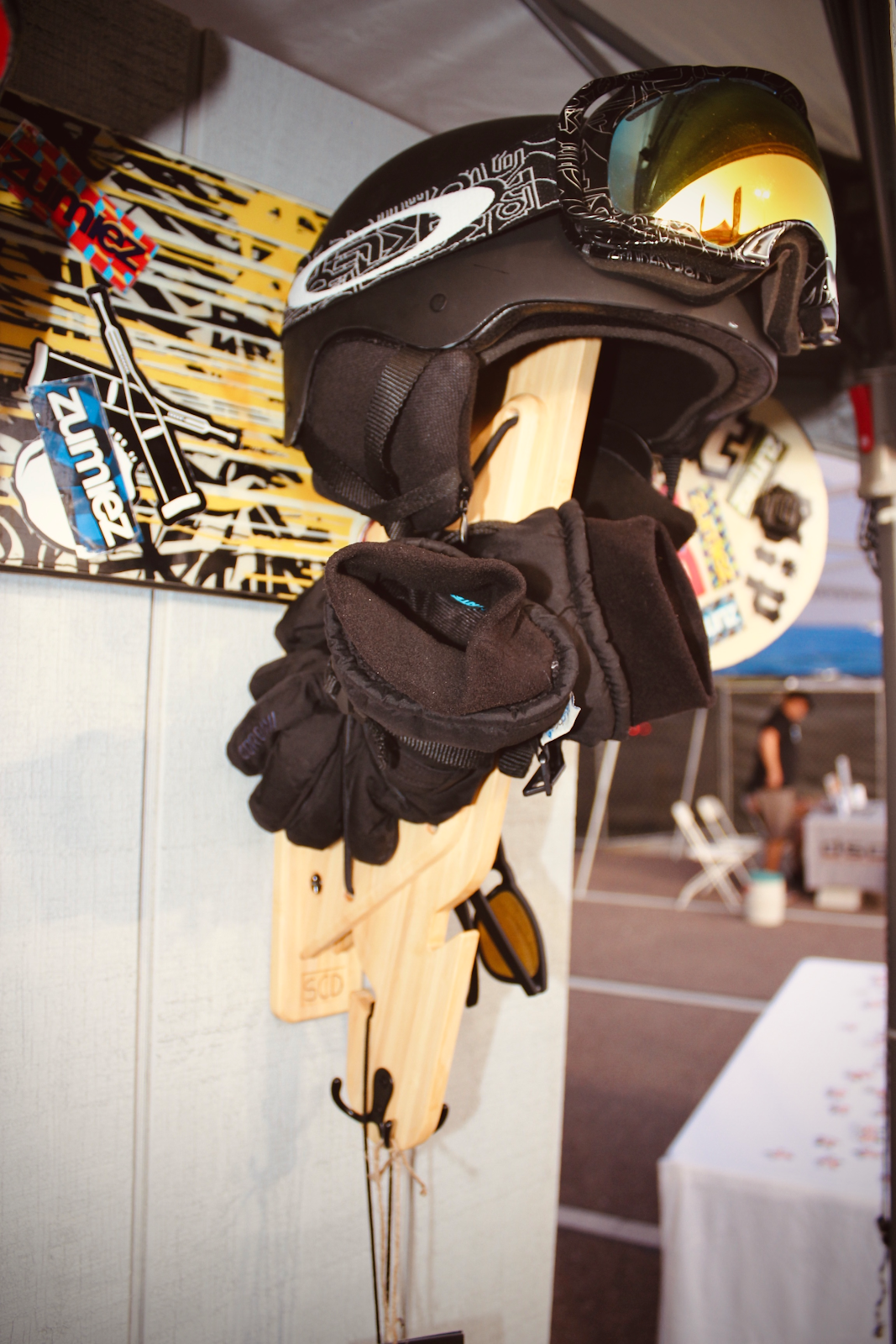Building a better tomorrow with yesterday’s waste
At the heart of the Global Sport Institute’s mission is to support interdisciplinary research and innovation that examines critical issues impacting sport and all those connected to sport. We have remained strongly committed to the pursuit of inspiring innovative thinking to positively shape the future of sport.
Our work in this space is best exemplified through our venture funding opportunities and partnership with ASU Entrepreneurship + Innovation and Venture Devils.
We now have three venture competitions with the Global Sport Social Impact Challenge (GSSIC), the Global Sport Venture Challenge (GSVC) and the Phoenix Rising FC Venture Challenge (PRVC). The Global Sport Social Impact Challenge was created to support ideas that positively change the world, using sport as a platform. One of our past winners of this challenge is Strax Gear. Strax Gear focuses on sustainability by creating outdoor sports products and apparel made from recycled materials.
What started as an internship at a ski manufacturing company, quickly became the cornerstone of a business model for founder and CEO of Strax Gear, Sean Dicke. He was in his last summer before graduating from Arizona State University when he stumbled upon an ingenious way to repurpose sheets of excess bamboo from the manufacturer. What happens when you stick a product designer in a room with a $50,000 Computer Numerical Control (CNC) machine and a plethora of wasted material? Eventually, you get your first prototype for what would ultimately become the Strax Rack.
While watching that CNC machine carve beautiful skis day in and day out, Sean’s mind questioned whether there was a more efficient way to utilize the excess bamboo. A curious investigation proved that the bamboo that would have normally been thrown out was the exact amount necessary for his prototype. He quickly found a process to repurpose the wasted material into a functional rack design, meeting the equipment storage needs of both weekend warriors and athletes in one efficient system.

Another example of the Strax Rack storing and displaying gear.
By fortunate coincidence, Sean was also required to create a business plan to fulfill his masters degree. It was during this assignment that he realized his mission was much greater than just fulfilling a course requirement. Sean was working to effectively cut back waste and create a sustainable future in sport. Not long after, Sean found a team of like-minded entrepreneurs to join him in his mission.
Due to the fact that Strax Gear only used excess material from local ski shops, the cost of production was low and feasible to sustain at scale. The group pledged a portion of each sale to go directly into multiple efforts to help the environment. These included unique initiatives like hosting waste clean-up weekends and donating to reputable causes. The co-founders of Strax Gear were and remain to this day determined to create a sustainable world.
We spoke to founder and CEO, Sean Dicke, to learn more about Strax Gear and their plans moving forward:
How has the Global Sport Institute impacted your venture’s journey?
From the start of becoming one of Global Sport Institute’s funded Venture Devils, our company has been able to expand our mentor network, greatly impacting our growth. The funding received from GSI has also made it possible for us to take a prototype and business model and turn that into a company with expanding product lines in just six months.
Strax Gear presenting at Venture Devils Demo Day.
Strax Gear is striving to be sustainable in everything it does. Can you elaborate on this mission?
Sustainability is a focal point for us as we begin to scale as a company. That means we assure quality and environmentally friendly methods from sourcing our materials, manufacturing, and eventually when the end product reaches our consumer. From our Strax Rack, we use material that will end up in the trash and give it a second life. We strive for all apparel to be made from recycled plastic blends and we even package our products in biodegradable materials.
What can you attribute the founding of Strax Gear to?
I would definitely say that it is a combination of opportunity and having a very supportive infrastructure. Originally it was just an idea for a class, but when people showed their support for the cause it was easy to assemble a team of passionate founders with a strong group of mentors to help guide us along the way.
What does your vision for the future of Strax Gear look like?
With an already expanding product line, we would like to lead the outdoor industry in developing not only eco friendly products, but sustainable products made from unique repurposed materials. This means that all of our offerings will be not only eco friendly, but also socially sound and financially feasible. We encourage anyone to join the cause and help us build a better tomorrow with yesterday’s waste.
This article has been edited for length and clarity. To learn more about the Global Sport Institute’s Innovation Programs, visit our innovation page.
Grant Fogerty is the Entrepreneurial Programs Assistant for the Global Sport Institute. He is a student pursuing his undergraduate degree in Economics from the W.P. Carey School of Business at Arizona State University. He is expected to graduate in the Spring of 2020.
For more content that goes beyond wins and losses, head to globalsportmatters.com.
The Global Sport Institute cares for the health and safety of all its readers. If you are having thoughts of hurting yourself or need someone to talk to, please take action now by calling 1-800-273-8255 or by visiting suicidepreventionlifeline.org. For other resources, visit the Mental Health Resources Guide.